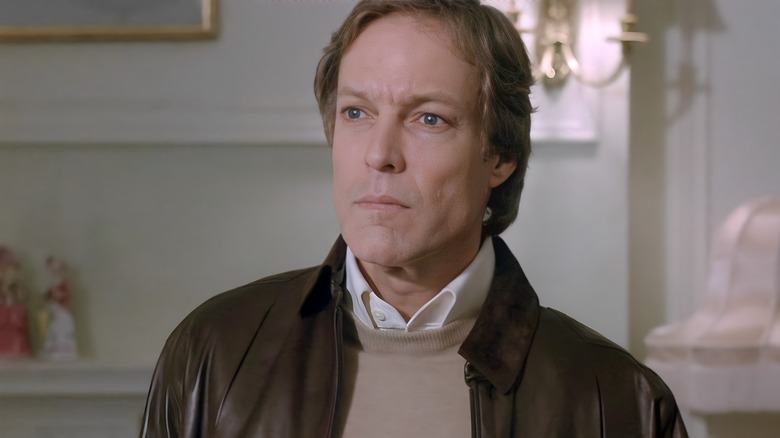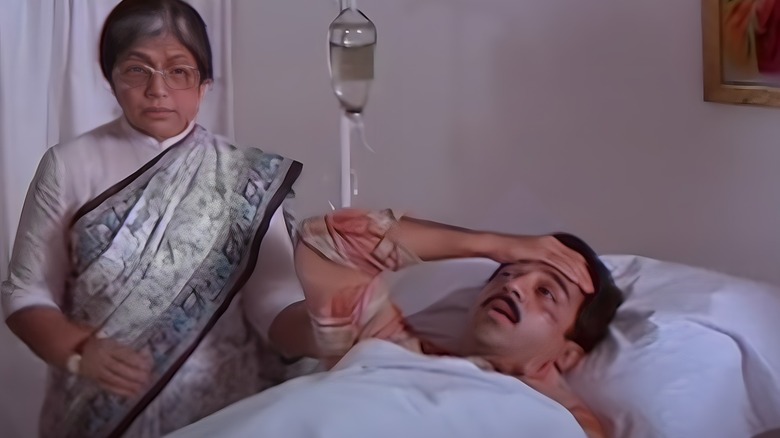The 1988 Bourne Movie You Never Knew Existed
When most people think about the "Bourne" franchise, they picture the Matt Damon-starring action movies that see him play an agent who gets caught up in conspiracies and must evade assassins as a result. Of course, Jeremy Renner also led one movie with 2012's "The Bourne Legacy," but for the most part, Damon is regarded as the face of the spy saga. However, few people mention the "Bourne" movie that predates Damon and Renner's tenures as Jason Bourne.
Released in 1988, "The Bourne Identity" is a television film that sees Richard Chamberlain play the title character. Based on Robert Ludlum's novel of the same name, the story sees Bourne wake up with amnesia in a small French town, and it soon becomes clear that his life is in danger. The plot is largely the same idea as that of Damon's "Bourne Identity" movie, even if it does lack the blockbuster sheen of the 2002 film.
The U.S. adaptations of Ludlum's books are the most popular, especially those which star Matt Damon. That said, "Bourne Identity" also inspired another adaptation, which came out one year after the release of the television film.
India produced its own Bourne movie
Robert Ludlum's fiction has an international appeal, as "The Bourne Identity" serves as the basis for the 1989 movie "Vettri Vizhaa." The plot follows a man who wakes up on the shores of Goa after briefly surviving an exchange with a group of armed men. What ensues is a race against time to put a stop to those who want to take him out of the equation for good. The fight scenes are a rousing mix of kung fu and bad dubbing, but it's an entertaining experience.
As documented by India Times, director Prathap K. Prothen said that he was a fan of Ludlum's novel, so he was excited to helm a movie based on it. The director said that it reminded him of an Indian play called "Shakuntala," albeit with more action. As of this writing, "Vettri Vizhaa" is the only non-American iteration of "Bourne" out there. However, it's interesting to know that Ludlum's book was inspiring filmmakers long before it was given the Hollywood franchise treatment.

